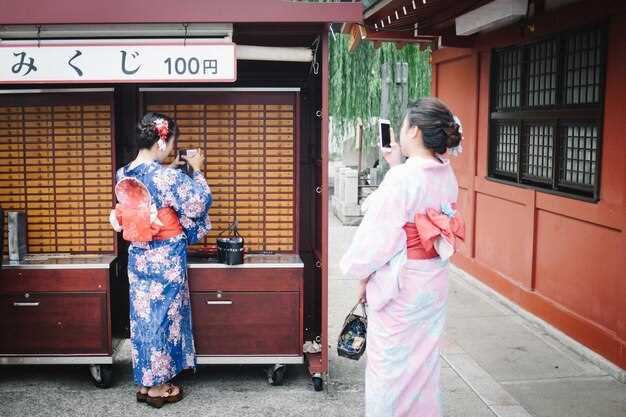
Sourcing authentic Japanese imports can be a rewarding experience for enthusiasts of Japanese culture, fashion, and craftsmanship. Whether you are looking for traditional items like tea sets and textiles or contemporary products such as electronics and fashion, understanding where to find these unique goods is essential. The allure of Japanese imports lies not only in their quality but also in the rich history and artistry behind each item.
When it comes to sourcing Japanese imports, the internet offers a multitude of options for consumers. Numerous online marketplaces specialize in authentic Japanese goods, providing a platform for both established brands and independent artisans. However, it is crucial to navigate these platforms carefully to ensure that you are purchasing genuine products. Take note of seller ratings, reviews, and return policies, as these factors can guide you in identifying reliable sources.
On the other hand, exploring offline options can also lead to exciting discoveries. Specialty stores and boutiques that focus on Japanese imports often curate their collections with care, showcasing high-quality items. Visiting these physical locations allows you to see, feel, and appreciate the craftsmanship firsthand. Not only does this enhance the shopping experience, but it also supports local businesses that champion authentic Japanese products.
In summary, whether you choose to shop online or offline, there are abundant opportunities for sourcing authentic Japanese imports. By being mindful of your options and conducting thorough research, you can enrich your collection with unique pieces that embody the essence of Japanese culture.
Identifying Reliable Online Platforms for Japanese Imports

Finding trustworthy online platforms for sourcing authentic Japanese imports requires careful consideration. Begin by researching well-known websites that specialize in Japanese products, such as dedicated marketplaces or online stores focused on Japanese culture and craftsmanship. Look for platforms with positive reviews and feedback from previous customers, which can often be found on forums and social media.
Check if the website provides detailed product descriptions, including information about the manufacturer and origin of the items. Reliable vendors usually showcase their sourcing practices, which helps to assure buyers of authenticity and quality. Pay attention to any certifications or affiliations with recognized Japanese brands, as this can be a strong indicator of a legitimate source.
Another important aspect is customer service. Assess the platform’s responsiveness and willingness to address potential inquiries or issues. A reliable site should offer clear communication channels, such as email, chat support, or phone assistance. Additionally, verify their return and refund policies to understand your rights as a consumer.
Safety and security are paramount when shopping online. Ensure that the platform uses secure payment methods and has protective measures in place for personal data. Websites with SSL certificates are generally more trustworthy.
Finally, consider exploring niche platforms that cater specifically to Japanese products, as they often curate selections from reputable sellers. Engaging with online communities or groups dedicated to Japanese imports can also lead you to recommended resources, enhancing your sourcing experience.
Exploring Local Stores Specializing in Japanese Goods

When it comes to sourcing authentic Japanese products, local stores can offer a unique experience that online shopping may lack. These specialty shops often have a carefully curated collection of Japanese goods, ranging from traditional crafts to modern merchandise. Visiting these stores not only allows you to discover quality items but also provides an opportunity to engage with knowledgeable staff who can share insights about the products’ cultural significance.
In urban areas, look for stores that focus on Japanese imports, such as tea shops, bookstores, and artisan craft outlets. These retailers typically source their inventory directly from Japan, ensuring that you find genuine items that reflect the true essence of Japanese culture. Established markets often have sections dedicated to Japanese goods, featuring everything from ceramics to textiles.
Additionally, participating in local cultural festivals can introduce you to vendors specializing in Japanese imports. These events often showcase traditional arts and crafts, as well as culinary delights, providing a platform for artisans to connect with the community. By supporting these local stores and vendors, you contribute to the preservation of Japanese crafts and the promotion of cultural exchange.
In summary, exploring local stores that specialize in Japanese goods enhances your shopping experience by offering authentic products and cultural engagement. Take the time to visit these establishments and enjoy the unique treasures they have to offer.
Understanding Import Regulations and Costs for Japanese Products
When sourcing authentic Japanese products, it’s essential to be aware of the import regulations that govern these transactions. Different countries have specific rules regarding the importation of goods from abroad, including Japan. Understanding these regulations helps ensure compliance and avoids potential legal issues.
One of the first steps in importing Japanese products is to check the customs regulations of your country. Different categories of goods may have varied restrictions, duties, or tariffs. For example, electronics often have higher scrutiny due to compliance with safety standards.
Import Duties and Taxes: When importing from Japan, be prepared to pay import duties and taxes. These costs can significantly affect the total price of the products. The duty rates may vary based on the product category and its declared value. Additionally, some countries offer exemptions for certain items under specific conditions.
Shipping and Handling Costs: Shipping costs can also add to the overall expenses. The method of transport (air, sea, or land) will impact the cost and delivery time. Air shipping is faster but typically more expensive, while sea freight can be cost-effective for larger shipments but may require a longer waiting period for delivery.
Furthermore, you should consider customs brokerage fees if you choose to use professional services. Brokers can facilitate the import process but will charge a fee for their services.
Compliance Documentation: Ensure that all required documentation is prepared before the products arrive. This includes invoices, packing lists, and certificates of origin. Proper documentation is crucial for a smooth customs clearance process.
In summary, understanding import regulations and associated costs is vital when sourcing Japanese products. Being informed will help you avoid unexpected expenses and ensure a successful import experience.




